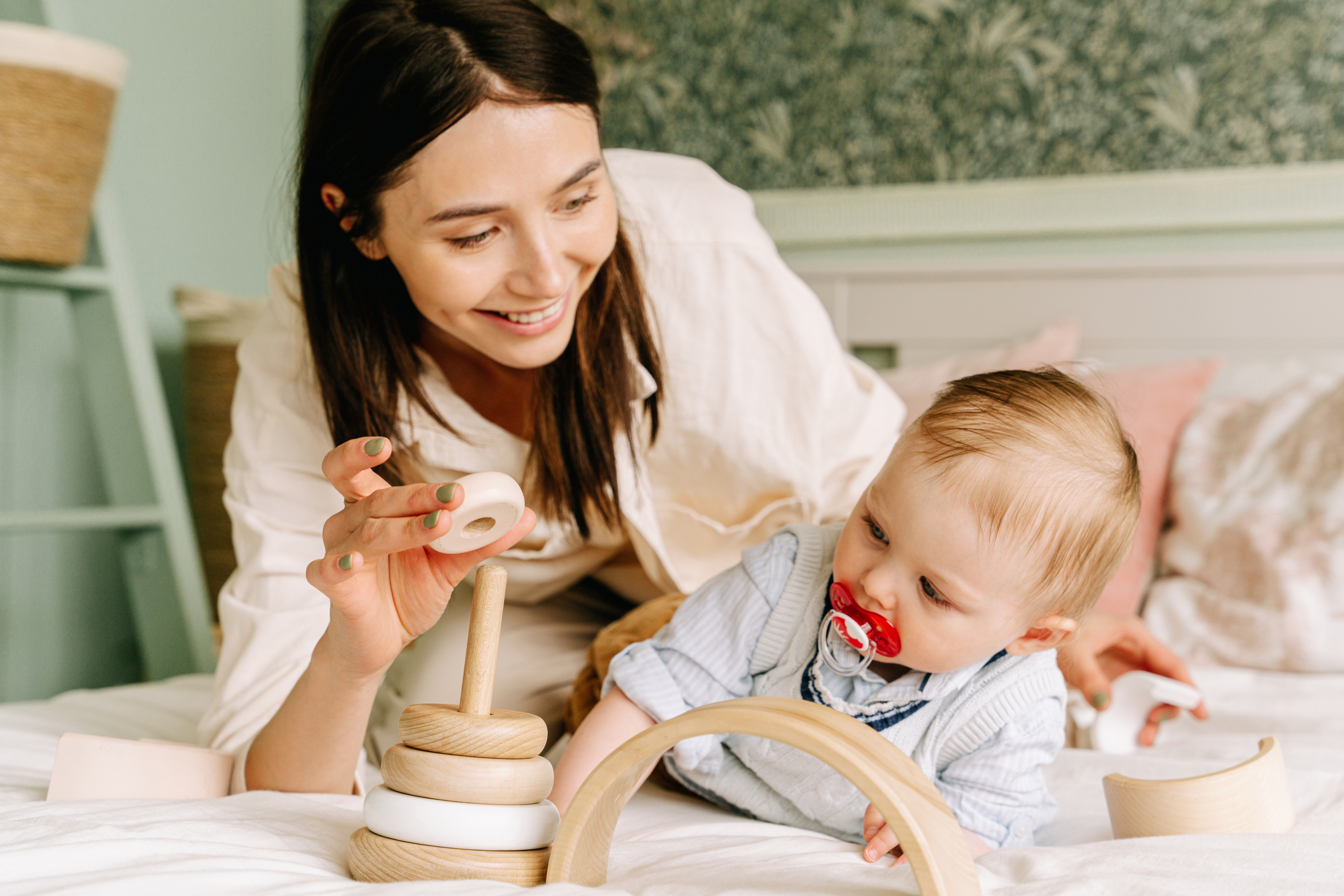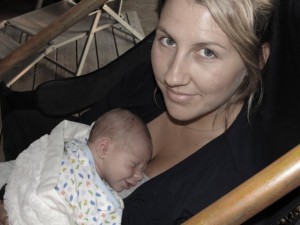To learn more about baby motor development, go to Infant Motor Development.
Since the Public Health Expertise And Reference Centre and the Canadian Pediatric Society developed directives concerning babies sleeping on their backs, many parents wrongly think that they need to lay their baby on their back all the time. This is a significant impediment to their motor development.
A baby needs to be placed regularly on their stomach. This is essential for them to develop their sensorial and motor exploration skills. Each day, the baby should be placed on their stomach 10-15 times. They will learn to raise their head, put weight on their hands, raise their bottom, creep, crawl on all fours, then stand up and walk. The diaper change is a great time to do this repeatedly.
Always laying on their back can lead to a delay in their motor skill performances needed to move around. Under supervision, you can place your baby on their stomach and alternate between their two sides to promote a variation of sleep positions over 24 hours.
Skin-to-skin with a new baby also helps promote the stomach position laying on their parent, while also preventing newborn plagiocephaly (flat head).
A baby will often naturally try to do things that seem easier for them to minimise their efforts to reach their goal. That is why some babies are called lazier or more passive. They will need more stimulation and encouragement to get them to do things in different ways.
Even if child development is a dynamic and individual process, sometimes, as a parent, you need to push them to learn particular things. When a health professional evaluates a baby’s development, they look at the whole situation before making their clinical evaluation and diagnosis.
The two first years in a child’s life are crucial for their sensorial and motor development (senses and activities). This period is when children build the foundation that will serve them for the rest of their life. It is a sensitive period that requires optimal stimulation, not too much or too little. When their environment is stimulating and encourages learning, the baby will become lively and self-confident. As a parent, you shouldn’t try to accelerate the developmental process by overstimulating your child. It is not always positive that a baby seems ahead of the developmental curve. Skipping over some stages can harm rather than help over the short, medium and long term.
To continue reading, go to the Foundations of a Baby’s Physical Development.



